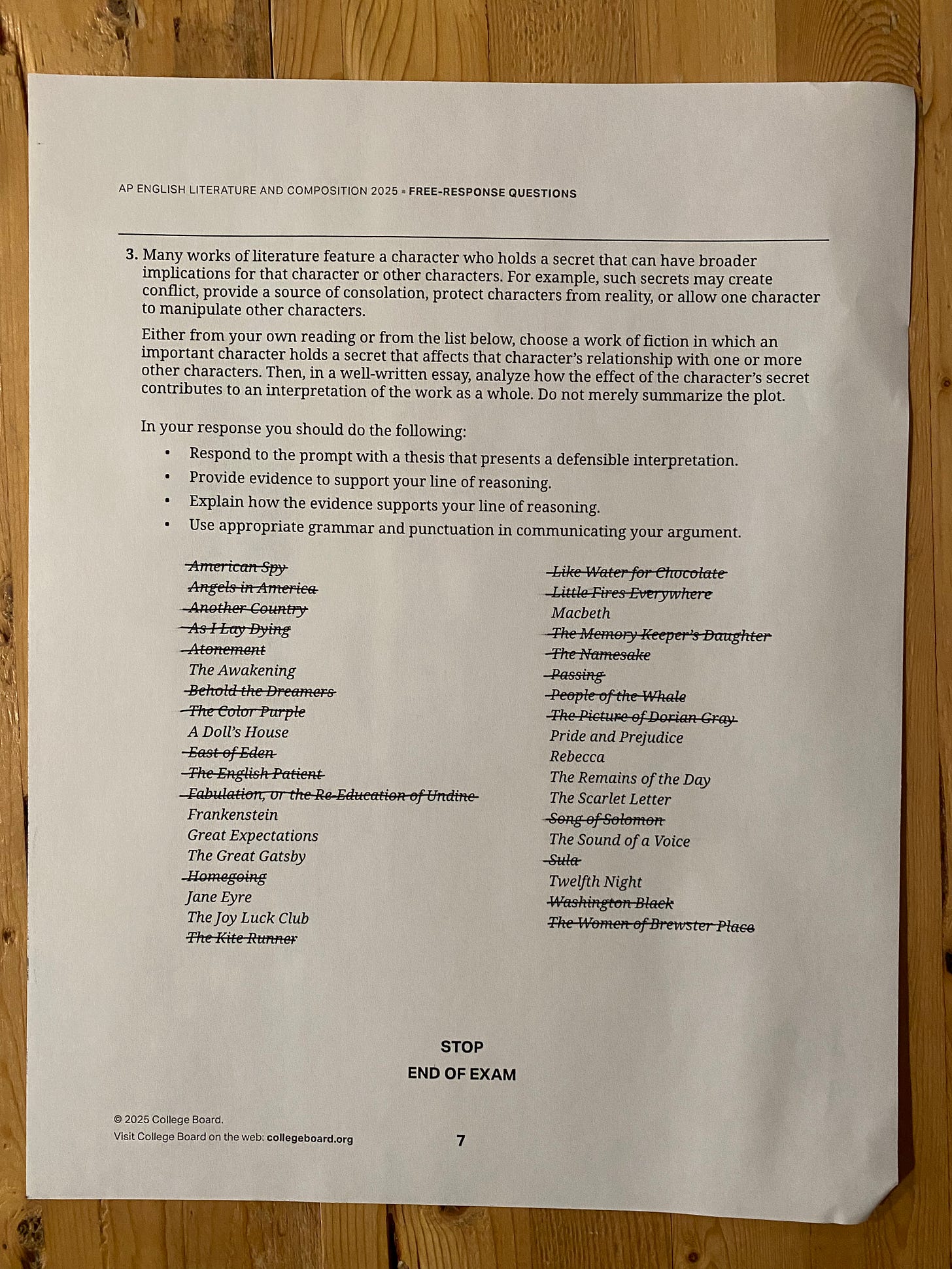A visualization: What would SB13 do to literary education in Texas?
The bill, moving towards a floor vote in the Texas House of Representatives, would decimate advanced-level English classes.
Angela Paxton’s Senate Bill 13, which would drastically reduce the availability of books in Texas schools, looks likely to move out of the House Committee on Public Education and towards a vote on the House floor that could send it to the governor’s desk. This comes more than a week after it was heard in a committee meeting that ran deep into the night.
I’ve written about why bill is bad before, and Texas Freedom to Read Project has tracked (and submitted to the committee) the effects of the elements of the bill that have been implemented in districts around Texas.1
But instead of telling you why this bill is bad for Texas schools, today I want to show you. Below, in Figure A, is Free-Response Question 3 from this year’s AP Literature exam.2 Thousands of Texas high-schoolers answered this question last Wednesday. Figure B is the same question, but with all of the books that would be banned from Texas schools under SB13 whited out.3
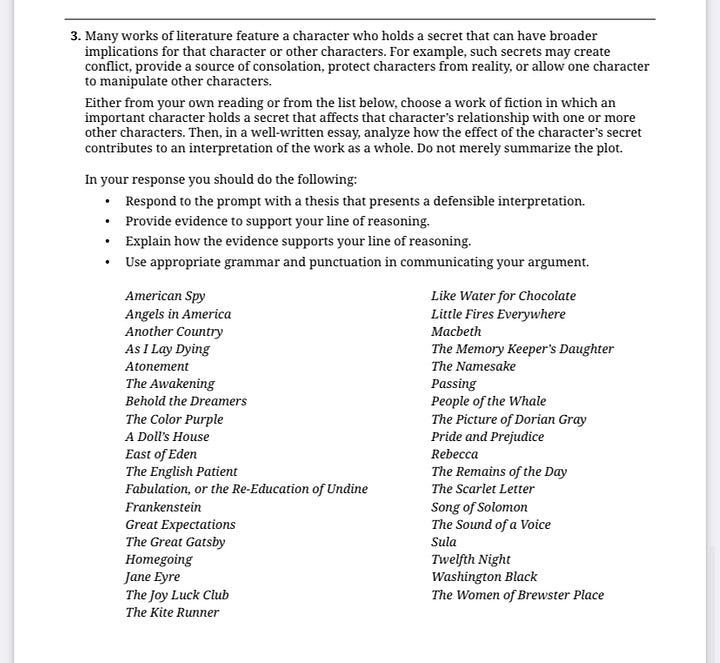
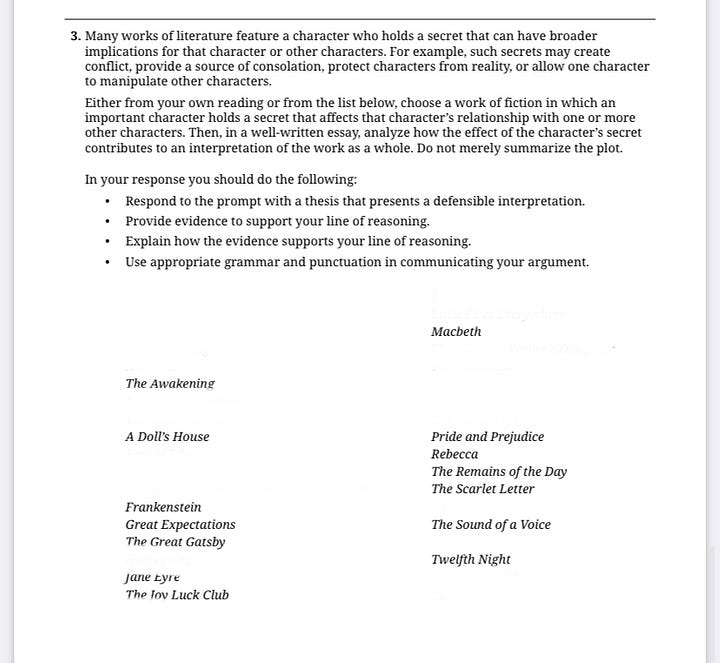
Stark, isn’t it? Of the 37 novels and plays that appeared on last week’s AP Literature exam, SB13 would make 23 basically unteachable in Texas.4
To be clear, a lot of these books have already been under attack, with many (The Color Purple, The Kite Runner, Homegoing, Like Water for Chocolate) already removed from schools around the state.
Often, the justification for those removals has been HB900, last session’s book restriction bill. Before HB900 was passed, I warned that it, too, would have devastating consequences on the teaching of literature in Texas.
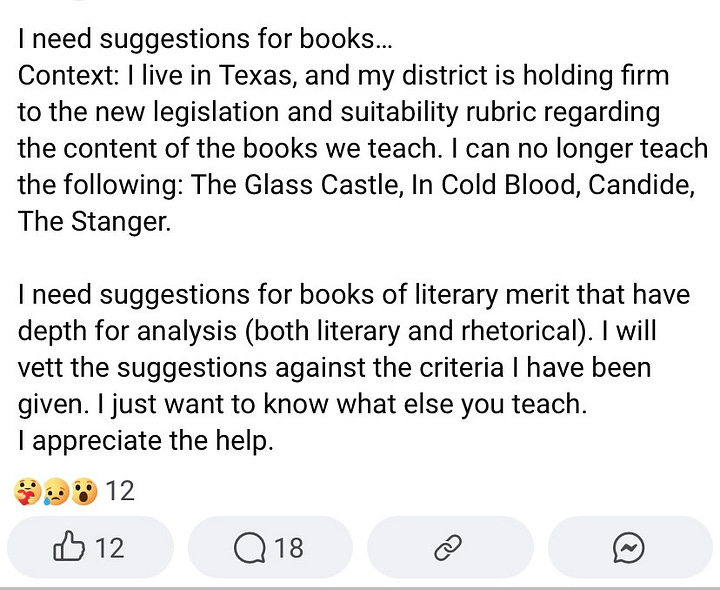
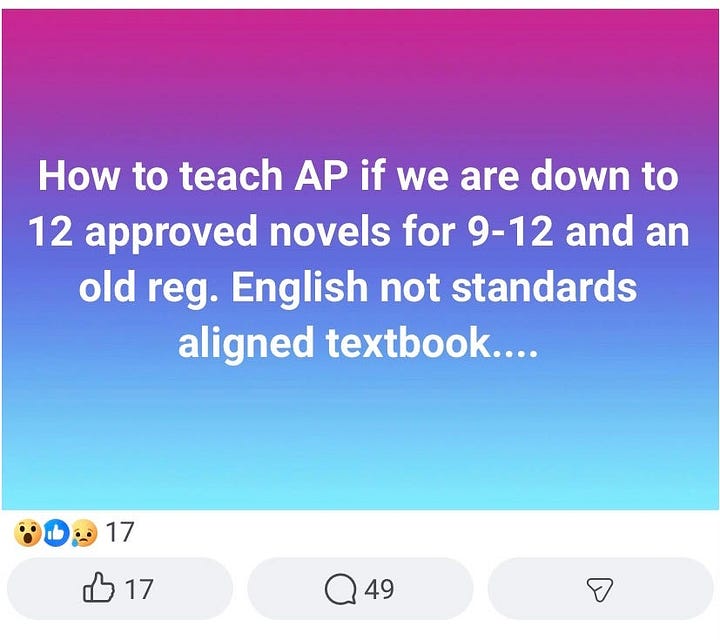
But SB13 ups the ante. Whereas HB900 forbids books that are “sexually explicit,” “pervasively vulgar,” or “educationally unsuitable,” SB13 adds two new categories: books with “indecent” or “profane” content.
The definitions for both of those categories are broad. “Profane” content is defined in the law as any text that “includes grossly offensive language that is considered a public nuisance.” “Indecent” content “portrays sexual or excretory organs or activities in a way that is patently offensive.”
That means that books like Passing and Washington Black, which don’t have any sexually explicit content at all, will now be off limits, because both contain “profane” language as defined in the law. Those are big losses! Nella Larsen’s Passing is a classic of the Harlem Renaissance and both an interesting and accessible exploration of race as a social construct. Washington Black is a beautifully written, acclaimed and richly entertaining novel about the adventures of a man who escapes slavery. Texas students will be poorer for not having access to works of literature like these.
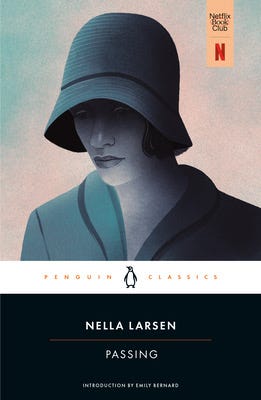
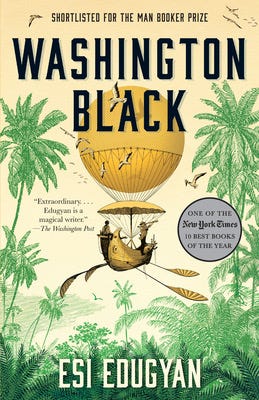
Of course, the AP Literature is not the be-all-end-all of literary education.5 But these two snapshots are good indications of what will be lost if SB13 becomes law.
And when I look at the books that are left on the list, it’s clear that even SB13 won’t satisfy the folks who claim schools are indoctrinating children. The Awakening, A Doll’s House, The Great Gatsby, and The Scarlet Letter all lend themselves to explorations of race, gender, and/or sexual morality that would trouble the book banners. And Shakespeare is famously indecent, even if most of his references sail over the heads of today’s censors. But the bill clearly will make the pool of literary perspectives available to Texas students whiter, straighter, more male, and less contemporary.
But most of all, the bill will make the list of literary perspectives our students can access smaller. Those white spaces in Figure B represent holes in our students’ education. And every legislative session, those holes get bigger.
WANT TO DO SOMETHING ABOUT SB13?
Are you reading this before the House Pub Ed Committee has voted on the bill (likely Friday morning, 5/16/25)? Click here to email the members of the committee and tell them to vote against SB13. Or call them!
Are you reading this after the House Pub Ed Committee has voted on the bill? Hopefully they voted “no,” but if not, contact your own state representative to tell them to vote against SB13 if it gets to the House floor.
Either way:
Spoiler: They’re disastrous. Carroll ISD and Keller ISD have essentially stopped ordering books for their libraries. Librarians are frustrated, students are being deprived of reading material—not just the ‘edgy’ books that the bill is supposed to keep out of schools, but all books. Carroll ISD has ordered no new library books for its senior high school in the two school years since it passed measures like those in SB13.
Question 3 always names a common literary theme and then asks students to interpret one work of fiction in which that theme appears. To help students out, the College Board provides a list of 30 - 40 novels; students may write about one of the novels on the list or any other they’ve read in class or independently. To be clear, the list of books is not a required reading list. But it is an indication of the kind of novels the College Board and expects American students to have read by the time they’ve finished high school. Importantly, it’s also a tool, both for students taking the test and for teachers planning their course.
I debated whether or not to include The Picture of Dorian Gray as a book that would be banned under SB13, as it’s hard for me to see how anyone could find it either profane or indecent. But the committee last week gave broad deference to book-banning crusader Bonnie Wallace, who spent last year traveling around the state demanding that districts remove a list of 676 books, including the Oscar Wilde classic. Her list also includes The Color Purple, Homegoing, The Kite Runner, and Like Water for Chocolate, as well as Richard Wright’s Native Son, Kurt Vonnegut’s Slaughterhouse-Five, Sandra Cisneros’s The House on Mango Street, Margaret Atwood’s The Handmaid’s Tale, Maya Angelou’s I Know Why the Caged Bird Sings, and Haruki Murakami’s The Wind-Up Bird Chronicles. Wallace also told the committee that her list of books to be removed has grown to more than 900 titles, and that she has never challenged a “classic,” except for a couple of Toni Morrison books.
I’ll have a fascinating interview with a critic of AP and the College Board, Annie Abrams, up in the next few days. Become a paid subscriber to read it when it comes out!


